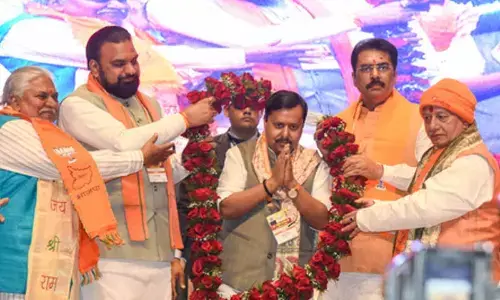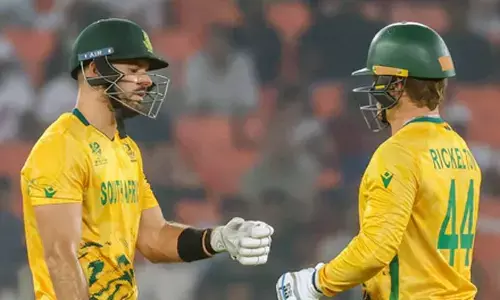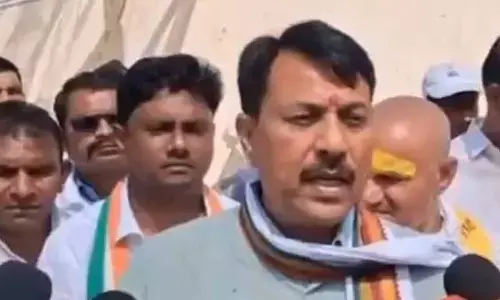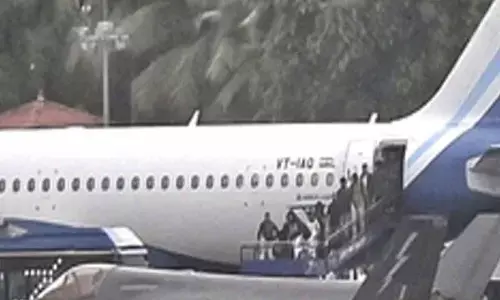Making govts truly representative
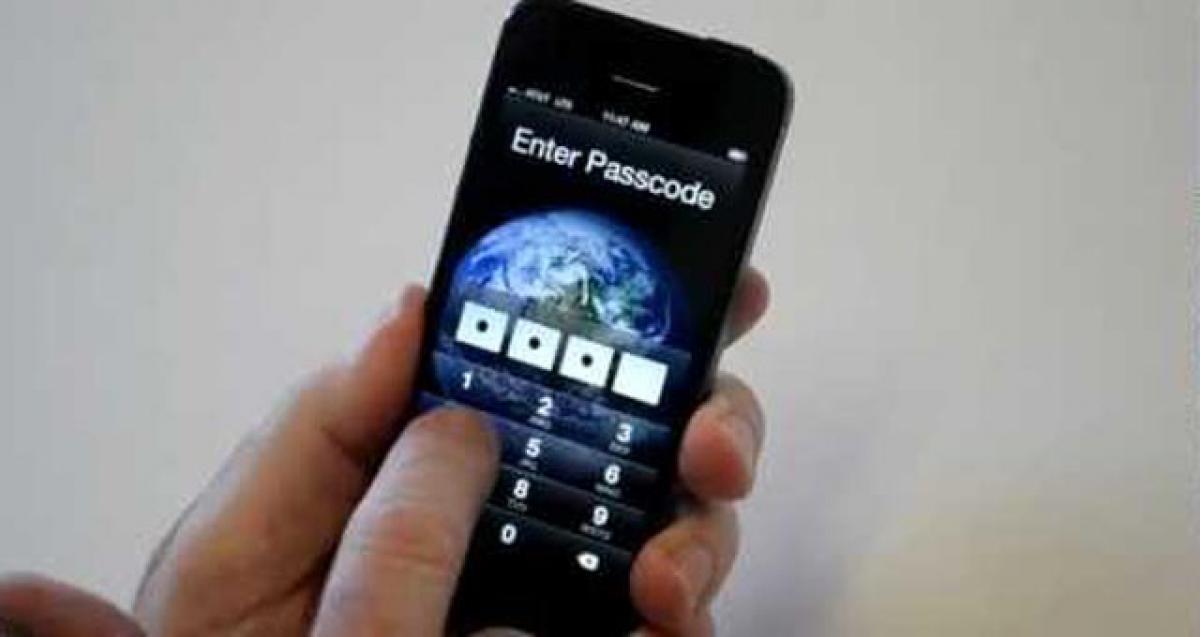
An all-party meeting was held on 29th August, 2016 in New Delhi, under the auspices of the Central Election Commission. CPI, CPI(M), Congress, BJP and other parties attended this meeting. The meeting took place following a directive given by the Supreme Court.
An all-party meeting was held on 29th August, 2016 in New Delhi, under the auspices of the Central Election Commission. CPI, CPI(M), Congress, BJP and other parties attended this meeting. The meeting took place following a directive given by the Supreme Court.
The main crux of the meeting is that every citizen in our nation has to utilise his/her franchise. Certain migrants have knocked on the doors of the judiciary, praying to the apex court to give an opportunity to the citizens of India who are residing outside India temporarily for various unavoidable reasons. After hearing arguments and counter arguments several times, the highest seat of justice has directed the Election Commission to discuss the issue with the political parties.
But, the report presented by the Election Commission lacked clarity and focus. People, who are registered as voters, leave the country either for higher education, employment, business or for other valid reasons. It is obviously not possible for them to come to India and vote.
In the same manner there are a large number of people living outside their native states and districts, whose number can be in tens of lakhs or even more. Though postal ballot system is in existence, it is highly restricted to employees posted for election duty etc. There is an illusion among many that only a marginal section of people alone will sell their votes.
I happen to be a victim among many in this postal ballot system. I contested from Khammam parliament seat in the 2014 General Elections. I was for the formation of separate state of Telangana, and hence many government and non-government employees and officials made resolutions to vote in favor of me. The candidate fielded by YSRCP did not support separation. In spite of it, the YSRCP candidate could bag more than 4000 votes, but I could get just 400 votes through postal ballots. Poverty alone is not the main reason for people selling their precious vote.
In view of such sour experiences all over India, the present method of postal ballot is not the ideal one. The voters who are living away from their polling station area are not much interested in voting for a candidate, with whom they are not familiar with, or even for the reason that they don’t associate themselves with that particular party or candidate.
For example, a North Indian temporarily residing in South India may not identify himself with the emotions and policies of a Southern regional party. This severely impairs our political process as a good number of voters are not able to or not willing to exercise their franchise. There are instances where a candidate who is prepared to spend money to bring outstation voters back to his constituency to vote for him. But this is a violation of the rules of the Election Commission and cannot be encouraged.
Purchase of votes by using money, gifts, liquor or other short-term benefits has become the norm of the day, thus making only the very rich to be able to afford contesting elections. False promises of jobs, civic amenities and creating caste biases among voters are helping vested interests gain an upper hand in the election arena. Honest candidates, who have spent their lifetime serving the people and had fought against social evils and corruption in the interests of the poor, are nowhere to be seen in the election race.
The Election Commission is considering e-ballot system as one of the measures to increase voter participation. The present postal ballot system is inefficient, time-consuming and is costly. But e-ballot system has got many advantages in this respect. Some of the advantages are as follows: 1.
Internet has become widespread and Internet-linked phones are very common now-a-days; 2. The system is highly secure as every day, monetary transactions worth thousands of crores of rupees are being done through e-commerce. Hence its security and viability is established beyond doubt; 3. E-ballot will enable voters to promptly vote for the candidate of their choice; 4. This can also be applied to defense personnel, police and other security personnel posted outside their normal constituency on government duty.
Following are our proposals for e-ballot system:
- People living outside their constituency (either out of the country or in another place within the country or employees assigned to election duty) can register themselves one month prior to the polling date to register their eligibility for e-ballot;
- They have to provide proof of their citizenship either by producing Aadhaar Card, valid Passport or Voter ID and proof of their residence outside the country or that they are away from their native constituency;
- They have to fill up an application on the Election Commission website, specially provided for the purpose of e-ballot registration, giving details of their address, period of stay outside their constituency, e-mail address, mobile number etc. The authenticity of their application will be verified by sending an sms message and the applicant has to respond to the message. They can also respond on the web page;
- One day prior to the polling date, they will be provided a unique ID number valid for the polling date only during the polling time specified; and
- The votes polled through e-ballot will be provided with high security and will be allotted to the respective candidates by the Election Commission.
In keeping with the developments in computer and communication technologies and the widespread usage of Internet, e-ballot system is not only viable, it is also secure and economical as it costs next to nothing for a voter in a faraway place to cast his vote. Just as financial e-transactions are highly secure through the Internet, e-ballot also is highly secure. It will not be possible for anyone to duplicate his vote as only one Unique ID number will provided and it can be used only once.
The Election Commission can think of some more security measures, but they should be in such a way as not to discourage the voters from exercising their franchise. The Election Commission organised this meeting with the help of Tata Institute of Social Sciences (TISS), which has made certain efforts in this regard. Consultations have been done by the EC with many data-based institutes also. But they could not find out a solution to usage of vote by 100% voters.
I have given one draft proposal as detailed above in this context. Present legislation does not match software technology. Legal experts have informed that present legalities will not allow "online polling.” One more suggestion is that the existing laws can be amended in view of the changes in the usage of new technologies. It is neither a Herculean task nor a proposal that is not economically viable.
But still the question remains, what about uneducated workers who were forced to migrate from their native places seeking livelihoods due to recurring droughts? Can we devise a suitable method by which they can also participate in e-ballot? On appearance, it may sound like a difficult proposal, but it is not an impossible task. We can always find a workable solution. With the widespread use of mobiles even among low income groups, we can always find an appropriate method of empowering them to exercise their right to vote.
The Election Commission has to go into the history of our elections and voting rights. In colonial rule, voting rights were limited to some elite sections only. At one stage, even women were not allowed to vote. That means 50% of population were not having voting rights. As a result of struggles by the women of this nation, they could achieve the right to vote. CPI and Left youth and students organisations waged militant battles demanding voting right at the age of 18 years. Now the only section of people remaining outside the purview of voting is migrants abroad and domestic migrants.
The Election Commission has to give a serious attention to this issue so that 100% voters can use their right of franchise. We cannot call our country fully democratic one until and unless everybody is given an opportunity to vote. What happened during the 2014 General Elections? BJP could come to power with just 32% of votes. That means 68% of the people of this country have either voted against BJP or did not turn up for polling. BJP with the support of just 32% of voting is ruling this big nation. This should not be allowed. System should be changed to make people’s choice more meaningful.
Above all the present election system should be replaced by proportional representation method by which all political parties, religions, castes, various sections of all walks of life will get representation in legislative bodies and every section of our society will have say in decision making bodies. The 22nd National Congress of CPI held at Pondicherry in March 2015 had adopted a resolution calling for proportional representation in Indian elections.
However, the meeting called by the Election was inconclusive and was postponed, without seeking a viable solution to this problem. It was felt that more deliberations have to take place with legal and constitutional experts, political parties, public organizations and other institutes of social sciences. The EC felt that only after widespread deliberation could a decision be arrived at. (Writer is National Secretary, Communist Party of India)








